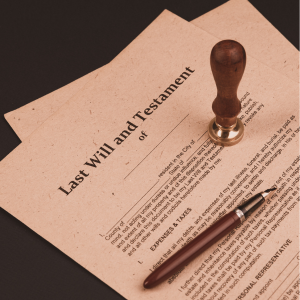
Helping Home Solutions provides expert guidance for probate real estate sales in North Carolina. We help families sell estate property smoothly and in compliance with the law. We offer support and insights to help you make informed decisions every step of the way.
Understanding the Probate Process in North Carolina
Navigating the probate process in North Carolina is critical to properly selling a residence as part of an estate. Probate is the legal process of distributing a deceased person’s assets, including real estate, based on their will or state law in the absence of a will.
In North Carolina, the executor of the will files a petition with the county clerk’s office where the decedent lived. The court subsequently verifies the will and authorizes the executor to handle and distribute the estate’s assets.
If there is no will, the court appoints an administrator to carry out these tasks. During probate, it’s important to communicate clearly with beneficiaries and fulfill all legal requirements, including settling debts and taxes before distributing property.
Selling a home under probate necessitates additional measures, such as obtaining court clearance and assuring compliance with state-specific legislation governing such transactions. Understanding the nuances of the North Carolina real estate sale procedure leads to a smoother transaction.
Timeline of the Probate Process and Its Impact on Property Sales
Understanding the probate timetable is vital for handling real estate sales in North Carolina. The probate procedure begins with the filing of a petition to administer the estate, which may take many weeks to be approved.
The first stage is crucial as it gives the executor or administrator legal authority to administer and sell the property. Once granted, creditors have 90 days to make claims against the estate, potentially delaying the sale of any real estate.
During this time, sellers must communicate regularly with their real estate professional and legal counsel in order to avoid complications caused by creditor claims or title concerns. After resolving creditor claims, court clearance is often needed before offering a property for sale, adding further time limits.
Selling an inherited property may provide particular obstacles, such as resolving conflicts among heirs or adhering to North Carolina disclosure rules. Each phase of probate can have a substantial impact on how soon a house can be sold, needing careful coordination among all parties involved to speed the process while adhering to state requirements.
Navigating Probate Court Procedures in North Carolina Real Estate
To navigate probate court proceedings in North Carolina real estate, it’s important to grasp the legal framework and necessary requirements for selling a property. When a homeowner dies, their estate is often probated to guarantee that debts are paid and assets are dispersed in accordance with the will or state law if no will exists.
In North Carolina, this process is handled by the probate court, which is responsible for sanctioning the sale of real property. To sell property from a deceased person’s estate, executors or administrators need to submit a petition to the court.
This includes supplying the relevant papers, such as the death certificate, will (if one exists), and an inventory of the estate’s assets. Representatives must follow North Carolina probate statutes and engage with real estate professionals who understand local market conditions and legal requirements after obtaining approval.
The sale itself must be performed in a transparent manner, generally through a public listing or auction, to ensure that beneficiaries receive fair market value. Clear communication with all interested parties, including heirs and potential buyers, is critical throughout this process to ensure a seamless sale while adhering to all legal duties under North Carolina probate law.
Legal Requirements for Selling a Probate House in NC

Understanding the legal criteria for selling a probate house in North Carolina is critical to a seamless transaction. The process usually begins with the executor or administrator of the estate receiving a court-issued authorization known as Letters Testamentary or Letters of Administration.
These documents establish the legal authority to manage and sell the decedent’s real estate assets. A professional assessment is necessary before marketing a property to determine its fair market value. This helps set an appropriate sale price and promotes transparency during probate proceedings.
Compliance with North Carolina probate rules requires that any accepted offer on the property be reported to the court for approval, ensuring that all transactions adhere to state requirements and safeguard the interests of heirs and beneficiaries. Sellers must also follow disclosure regulations by informing potential buyers of any material flaws in the property.
Working with an experienced probate attorney can help navigate the complexity of the sale process and ensure all legal requirements are completed.
You can sell your home for cash in North Carolina during probate. Still, the process requires court approval, notification of heirs and creditors, and compliance with state laws, with proceeds distributed according to the will or intestacy rules.
Understanding Heir Rights and Responsibilities During an NC Probate Sale
When dealing with probate real estate sales in North Carolina, it is critical to understand the rights and duties of the beneficiaries. Heirs often need to agree on the sale of inherited property, making them a crucial part of the probate process.
Once the estate enters probate in North Carolina, the designated executor or administrator is required to identify all heirs and beneficiaries in order to safeguard their legal interests. It is critical for heirs to understand their rights, especially the right to know the property’s value and sale terms.
Individuals should be aware of any estate-related debts or liabilities that may impact their inheritance. Heirs must cooperate with the executor to ensure a smooth transaction and may be required to offer consent for certain actions linked to real estate sales.
Understanding the tax implications and potential obligations of inherited property can assist heirs in making informed decisions during the complex process. Being proactive about these tasks guarantees that all parties are working together to achieve a successful probate sale in North Carolina’s real estate market.
Essential Documents Needed for Probate Home Sales in NC
Understanding the requisite documentation for probate real estate transactions in North Carolina, including filing a quitclaim deed, is critical for a seamless transaction. The process generally commences with acquiring a certified copy of the decedent’s death certificate, which initiates probate proceedings.
Executors or administrators must present the Letters Testamentary or Letters of Administration to validate their legal power to manage and liquidate the estate property. The will, if it exists, must be submitted to delineate any explicit instructions concerning the sale.
A comprehensive inventory of assets, encompassing all estate holdings, including real property, is essential for transparency and accountability during the probate process. A Preliminary Inventory and Final Inventory must be submitted to the court to comply with North Carolina probate regulations.
Sellers must collect the property records and titles to verify ownership and address any possible liens or encumbrances. A comprehensive title search is frequently performed to identify any complications that may obstruct the sale process.
Finally, acquiring an evaluation from a trained appraiser assists in establishing fair market value, guaranteeing that the property is sold at a suitable price. These documents combined ensure a legally valid and effective probate real estate sale in North Carolina.
Working with Legal Professionals During the NC Probate Process

Careful collaboration with legal professionals is necessary to navigate the probate real estate market in North Carolina and ensure a seamless transaction. It is imperative to retain the services of a seasoned probate attorney, as they can provide guidance through the intricacies of North Carolina probate laws and assist in the management of the legal documentation required for the sale of a property during this process.
These attorneys are essential in the process of interpreting the will, if one exists, and verifying the executor or administrator’s authority to sell the property. Legal professionals also provide assistance in resolving any disputes that may arise among heirs or other interested parties, thereby reducing the likelihood of delays.
Furthermore, they guarantee that all statutory requirements and deadlines that are unique to North Carolina probate proceedings are met, which is crucial for avoiding costly penalties or setbacks. Working in close collaboration with an experienced attorney can offer a sense of tranquility by guaranteeing that all legal aspects are sufficiently addressed and by facilitating communication between all parties involved, including real estate professionals and potential buyers.
How to Prepare a Probate Property for Sale in North Carolina
There are a few important steps that must be taken before a North Carolina estate property can be sold. First, it’s important to get the formal power you need by being named executor or administrator of the estate by the North Carolina probate court.
Now that you have permission, you can start by looking at the property to see what repairs or improvements need to be done to make it more appealing to buyers. A thorough inspection will help you find things that need your attention, like structural problems, old fixtures, or changes that just look better.
Getting rid of personal items and cleaning up the house is also a good way to make it look more appealing to potential buyers. Hiring a real estate professional in North Carolina who specializes in probate sales can help you figure out how to price your home and sell it in a way that will get people interested.
For a smooth closing process, it is also important to gather all the necessary papers related to the property’s title and ownership. Additionally, be prepared for potential contingencies—such as inspection findings or financing delays—that could affect the timeline or terms of the sale. By taking these steps ahead of time, you can better handle the complicated process of selling a family property in North Carolina’s real estate market.
Effective Marketing Strategies for Selling a Probate Home in North Carolina
When selling a probate home in North Carolina, efficient marketing methods are essential for attracting potential buyers and ensuring a smooth transaction. Begin by highlighting the property’s distinguishing features that set it apart from other properties on the market.
This could be its historical significance, architectural style, or locational advantages. Engaging a real estate professional with experience in probate sales can be quite beneficial; they understand the complexities of this unique market and can modify marketing strategies accordingly.
High-quality images and virtual tours help highlight the home’s features to prospective buyers who may be unable to visit in person. Listing the property on several internet platforms boosts visibility, while tailored social media marketing can reach out to specific groups directly.
Hosting open houses expressly for real estate investors may also boost interest, as these buyers are generally interested in purchasing properties sold through probate. By implementing these tactics, sellers can successfully manage the hurdles of probate real estate transactions in North Carolina.
Selling a probate home requires transparency and targeted marketing. At Helping Home Solutions, we buy houses in Winterville and other cities, offering a fast, transparent, and hassle-free sale.
How Long Can a House Be Sold While in Probate?

When selling a house in probate in North Carolina, it’s important to know how long it will take. The length of time it takes to sell a house under probate can vary greatly depending on a number of things, such as how complicated the estate is, how busy the courts are, and how well the executor or administrator is managing the process.
In North Carolina, the probate court must first approve any sale of real estate assets before the executor can do so. This means filling out a petition and, in some cases, going to hearings.
It can take anywhere from a few months to more than a year to sell a house while it is in probate. The first step is to figure out how much the estate’s assets are worth, which includes figuring out how much the property is worth.
Next, creditors must be told and given time to file claims against the estate. If there are any disagreements, this could make the process take longer. Also, getting potential buyers interested and negotiating offers may take more time.
It is very important for sellers to work closely with real estate professionals who know North Carolina’s probate regulations. This can help the sale go more smoothly and may even speed it up, as long as it is legal. Knowing these processes might help you set realistic expectations about how long it will take to sell a house in North Carolina that is in probate.
How Long Does an Executor Have to Settle an Estate in North Carolina?
In North Carolina, various factors influence an executor’s schedule to settle an estate, but understanding the major stages involved in negotiating probate real estate sales is critical. The probate process might last anything from six months to over a year.
To handle the deceased’s assets, including real estate, the executor must first petition the probate court. Once granted, they have a fiduciary duty to locate and inventory all assets, pay off debts and taxes, and finally divide the remaining assets in accordance with the will or state law if no will exists.
Selling real estate during this time involves meticulous adherence to North Carolina’s legal procedures, which may include seeking court approval for the transaction. Delays might occur when heirs disagree or when title deeds are unclear.
Thus, executors in North Carolina must be well-versed in local regulations governing probate real estate sales and collaborate closely with legal specialists to ensure compliance and efficiency in settling the estate within a reasonable timeline.
An executor manages and settles an estate, including paying debts, filing taxes, and distributing assets. For guidance, Contact Us at Helping Home Solutions.
Who Gets the Money From a Probate Sale?
In a probate real estate sale in North Carolina, it is essential to comprehend the distribution of proceeds. In the event that a property enters probate, it is the duty of the estate executor to oversee the sale and allocation of assets in accordance with the decedent’s will or, in the absence of a will, the applicable state intestacy laws.
The main recipients of funds from a probate sale are the beneficiaries specified in the will. In the absence of a will, the intestate succession laws in North Carolina dictate the distribution of assets, generally favoring spouses and children as primary heirs.
Once debts, taxes, and administrative expenses tied to the estate, including those incurred during the probate process, are settled, the remaining proceeds from the sale are allocated to the beneficiaries. Executors must follow legal requirements closely throughout this process to guarantee equitable distribution and prevent possible conflicts among heirs.
Grasping these essential steps guarantees that every party involved secures their fair portion from a probate real estate deal in North Carolina.
Are you thinking about selling? Helping Home Solutions helps you sell fast, avoid repairs, and enjoy a hassle-free sale. We make fair cash offers and take care of the details. Call (252) 541-7149 now for a no-obligation offer and start today.
| ESTATE LAW | PROBATING | TESTAMENTARY TRUSTS | LAST WILL AND TESTAMENT | DEVISEE | WILL AND TESTAMENT |
| TAX BASED | TOTAL ASSETS | INHERITING | TRUST | REAL ESTATE AGENT OR BROKER | ESTATE ADMINISTRATION |
| PROPERTY TAX | PROPERTY TAXES | MORTGAGE | WITHOUT A VALID WILL | WITHOUT A WILL | PROPERTY OWNERSHIP |
| CASH | FSBO | FOR SALE BY OWNER | ESTATE PLANNING | BENEFICIARY | SUPERIOR COURT |
| IBUYER | OPTION | JOINT TENANCY | PAYMENTS | LOAN | JUDGE |
| INSURANCE | INSURANCE COMPANIES | HOME INSPECTIONS | FEE | ESCROW | CONTRACT |
| BANK | HEIRS OR DEVISEES | OF SUPERIOR COURT | PROBATE AND ESTATE ADMINISTRATION | CLERK OF SUPERIOR COURT |
Helpful North Carolina Blog Articles
- Guide To Selling Your Home By Owner In North Carolina
- Understanding North Carolina Inheritance Laws
- Sell Your Home In Foreclosure In North Carolina
- Selling A House With Unpermitted Work In North Carolina
- Closing Costs Without A Realtor In North Carolina
- Mastering Contingencies In North Carolina Real Estate Sales
- Selling A Hoarder House In North Carolina’s Real Estate Market
- Understanding Squatters Rights In North Carolina
- How To Successfully Sell Your House With Tenants In North Carolina

